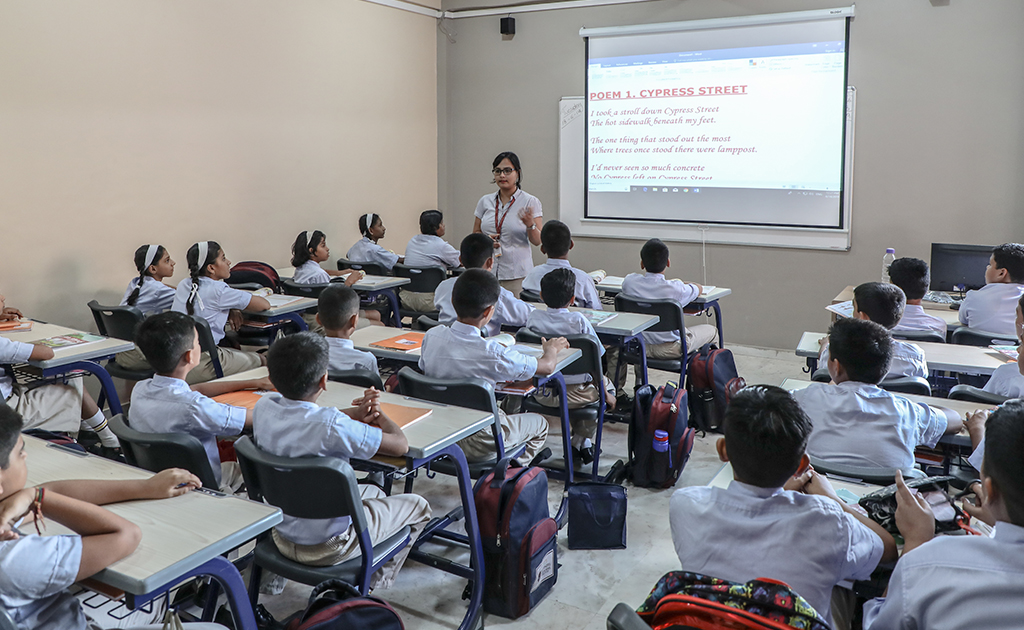DY Patil High School > Curriculum

CURRICULUM
Program of Academic Excellence at DYPHS
At D Y Patil High School (DYPHS), we adopt the country’s richest and longest serving academic board curriculum, the Delhi based, The Central Board of Secondary Education (CBSE).
The curriculum adopted nationally enables students to develop a critical thinking and problem-solving mindset and prepares them for real-life application. Considered one of the most popular curriculums in the country, at DYPHS, we believe our students will benefit with the range of subjects on offer, its academic depth and rigour which builds a solid foundation in their formative years.



